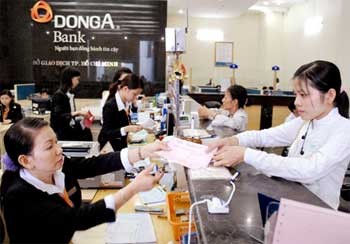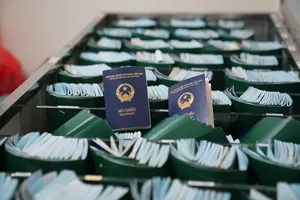Small-and medium-sized enterprises (SMEs) will be hard hit by negotiable interest rates, while commercial banks will reap bigger profits, experts have warned.
The negotiable interest mechanism, which was applied under Circular 07 dated February 26 by the State Bank of Vietnam’s Governor, could endanger the survival of SMEs and damage the economy, experts told SGGP.
“The negotiable interest mechanism is not safe as it does not conform to the Civil Code, which stipulates that interest is controlled by the State Bank of Vietnam’s regulation on the prime rate,” said Dr. Nguyen Van Thuan, head of the Accounting-Finance-Banking Department of the Ho Chi Minh City Open University.

He said the policy was not fair to businesses as only the interest rates on commercial bank loans were negotiable while deposit rates were not, Thuan said.
As such he argued that the policy did not represent interest liberalization in the financial market and should be revised for the sake of SMEs.
SMEs to suffer most
Since the negotiable interest was applied, the actual lending interest rate has increased to 16-18 percent, from the prime rate of 8 percent, while some banks were attracting more deposits by raising deposit interest rates to ensure lending sources, Thuan said.
Le Dat Chi, a financial and stock exchange expert, said he expected big business to take the safe option and invest their money in banks rather than risk it in other areas in the current inflationary climate.
“Meanwhile, SMEs often lack capital and have to apply for loans,” Chi said adding that since the new negotiable rate policy, banks have applied “higher, even too high, interest rates.”
He said, while it had been hard for SMEs to afford loans before, now it would be even harder.
Thuan said SMEs also had extra cost burdens because of the recent hikes in electricity, water and fuels.
Meanwhile, Chi forecast that “this year inflation may reach 10.5 percent and the prime rate may be increased to 9 percent.”
“SMEs usually depend on bank loans for their operation so if they can’t afford high interest loans, their business plans could come to a standstill. If that is the case, what will happen to the economy?” he asked.
What should banks do?
Last year, commercial banks benefited from the Government’s stimulus packages, enjoying increased lending balances in a low risk environment, Thuan said.
Most of the profits from banks’ credit activities have resulted from such packages, he added.
But now, although the negotiable interest mechanism has created a widened gap between input and output interest rates ensuring bank profits, that gap could be dangerous in the long term, he said.
The risk will comes when many businesses, especially SMEs, stop taking out high interest loans, narrowing banks’ output – making their input redundant, he said.
He also referred to the fact that commercial banks recently announced their usable capital reached as much as VND30,000 billion (US$1.58 billion).
If the new policy is not revised, Thuan predicted that banks might soon suffer from increasing bad debts because of the pressure on SMEs.










)

)











